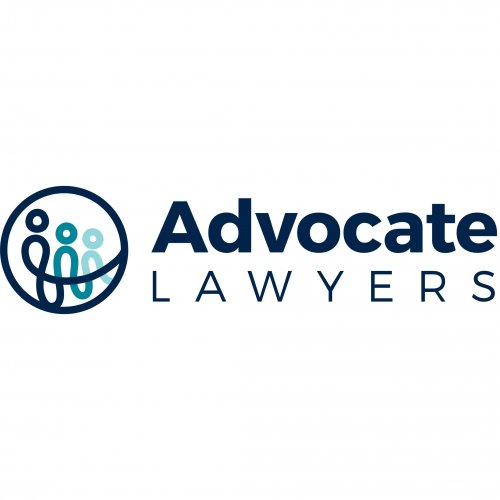Best Employment & Labor Lawyers in Kingston
Share your needs with us, get contacted by law firms.
Free. Takes 2 min.
List of the best lawyers in Kingston, Australia
Australia Employment & Labor Legal Articles
Browse our 1 legal article about Employment & Labor in Australia written by expert lawyers.
- Fired Without Warning in Australia: Unfair Dismissal Guide
- Most Australian workplaces are covered by the Fair Work Act 2009 (Cth), National Employment Standards (NES) and a modern award or enterprise agreement that set minimum pay and conditions. Strict deadlines apply: unfair dismissal and most general protections dismissal claims must be lodged with the Fair Work Commission within 21... Read more →
About Employment & Labor Law in Kingston, Australia
The realm of Employment & Labor law in Kingston, Australia is rooted in the collective responsibility to protect the rights and wellbeing of employees. The law encompasses a variety of areas such as dispute resolution, employee compensation, workplace safety, and discrimination, to name a few. These laws apply to all businesses operating in Kingston, Australia and compliance is strictly monitored by regulatory authorities.
Why You May Need a Lawyer
There are numerous situations where individuals may require a lawyer specializing in Employment & Labor law. These include, but are not limited to, cases involving unfair termination, workplace harassment, discrimination, wage or compensation issues, and denial of benefits or leaves. Lawyers proficient in this area of law can provide valuable guidance, representation in court proceedings, and ensure that your rights as an employee are protected.
Local Laws Overview
In Kingston, Australia, some key aspects of local laws relevant to Employment & Labor include the Fair Work Act 2009 which regulates terms and conditions of employment, and the Work Health and Safety Act 2011 that ensures workplaces are safe and free from health hazards. There are also Anti-Discrimination Acts which prohibit any form of discrimination in the workplace based on gender, race, disability, or age. These laws mandate fairness, equity, and safety in the workplace, adherence to which is a legal obligation for all employers.
Frequently Asked Questions
What qualifies as workplace discrimination?
Workplace discrimination occurs when an employee is subjected to unfair treatment based on their race, gender, age, religious beliefs, sexual orientation, or disability. Such behaviour is illegal and punishable under Australia's Anti-Discrimination Laws.
What should I do if I experience harassment at the workplace?
If you experience harassment at work, document the instances, report it to a superior or HR representative. If no action is taken, consider seeking legal assistance.
What happens if I file a complaint against my employer?
Employment law in Australia protects employees from retaliation for filing a complaint. This means your employer is legally prohibited from taking any punitive actions such as firing or demoting you.
Can an employer terminate my employment without reason?
Unfair dismissal is regulated under the Fair Work Act, which states that an employer needs a valid reason related to an employee's capacity or conduct to terminate employment. If not, it could be considered as unfair dismissal.
Is it necessary to have a lawyer for workplace dispute resolution?
While it's not mandatory to have a lawyer for dispute resolution, it is advisable. A lawyer can help understand the situation and guide you through the process, ensuring your rights are upheld.
Additional Resources
The Fair Work Commission and the Australian Human Rights Commission are excellent resources providing comprehensive information on all aspects of Employment & Labor laws. They guide on how to report issues, lodge a complaint, and what to expect through each step of the process.
Next Steps
If you believe you need legal assistance, the first step is reaching out to a competent Employment & Labor law lawyer. They will discuss your case, guide you on rights, responsibilities, possible courses of action, and what to expect during the legal process.
Lawzana helps you find the best lawyers and law firms in Kingston through a curated and pre-screened list of qualified legal professionals. Our platform offers rankings and detailed profiles of attorneys and law firms, allowing you to compare based on practice areas, including Employment & Labor, experience, and client feedback.
Each profile includes a description of the firm's areas of practice, client reviews, team members and partners, year of establishment, spoken languages, office locations, contact information, social media presence, and any published articles or resources. Most firms on our platform speak English and are experienced in both local and international legal matters.
Get a quote from top-rated law firms in Kingston, Australia — quickly, securely, and without unnecessary hassle.
Disclaimer:
The information provided on this page is for general informational purposes only and does not constitute legal advice. While we strive to ensure the accuracy and relevance of the content, legal information may change over time, and interpretations of the law can vary. You should always consult with a qualified legal professional for advice specific to your situation.
We disclaim all liability for actions taken or not taken based on the content of this page. If you believe any information is incorrect or outdated, please contact us, and we will review and update it where appropriate.
Browse employment & labor law firms by service in Kingston, Australia
Kingston, Australia Attorneys in related practice areas.








